By Joanne Sasvari
At Urban Digs Farm, the pigs are brown and black and copper coloured, with jauntily spotted wiry coats, twirly tails and alert ears. You’d swear they’re smiling at you. And why not? These are some of the happiest pigs around.
“We carry pigs that make good bacon and have good personalities,” says Julia Smith, co-founder and operations manager of Urban Digs. “Adorableness is one of the important characteristics we look for.”
Smith and her partner Ludo Ferrari started the farm in 2012 on two weed-choked acres in Burnaby. Right from the beginning, they wanted to raise free-range, pasture-fed heritage pigs, not the big, pink commercial pigs we all know so well.
Those commercial pigs have been bred for size, weight, uniformity and a lean, mild meat. They grow quickly and produce many litters of piglets, often without ever leaving the inside of a barn, making them ideal for intensive farming operations that value big, fast and relatively low-cost production.
Heritage pigs, on the other hand, can seem like a whole different species. “Heritage pigs are the original breeds and they all have unique characteristics and qualities,” Smith says.
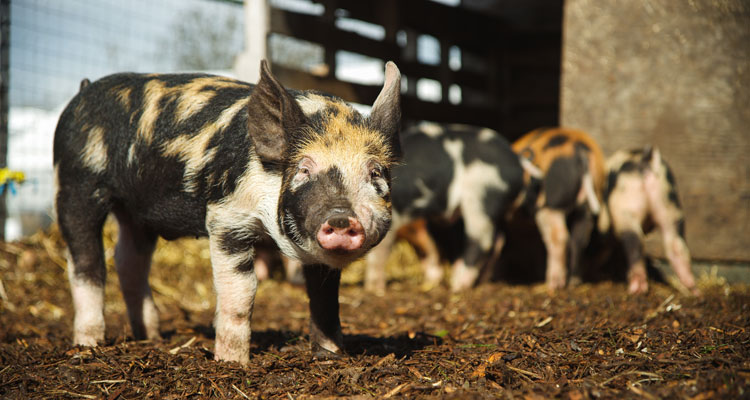
There are literally hundreds of heritage pig breeds, and they come in all sorts of shapes and sizes, colours and coats, personalities and temperaments. Because they originated all over the world, they thrive in a wide range of climates, from icy tundra to temperate forest to sweltering dessert, but they need plenty of space, fresh air and good food to thrive. That’s why at Urban Digs and similar farms, the pigs have shelters to protect them from bad weather but are otherwise mostly allowed to range and root freely.
“There are also taste variations,” says Smith.
As any chef can tell you, heritage pigs produce incredibly flavourful meat. The Berkshire, for instance, is succulent and juicy, perfect for chops and roasts. The lusciously fatty Tamworth is known as a bacon pig for its exceptional affinity for smoke. The wild and woolly Hungarian Mangalica has been called the “Kobe beef of pigs” for its rich, tender flesh that makes for luxuriously silky ham; similarly, the Spanish Pata Negra, whose favourite food is acorns, produces jamón ibérico, one of the world’s most precious foodstuffs.
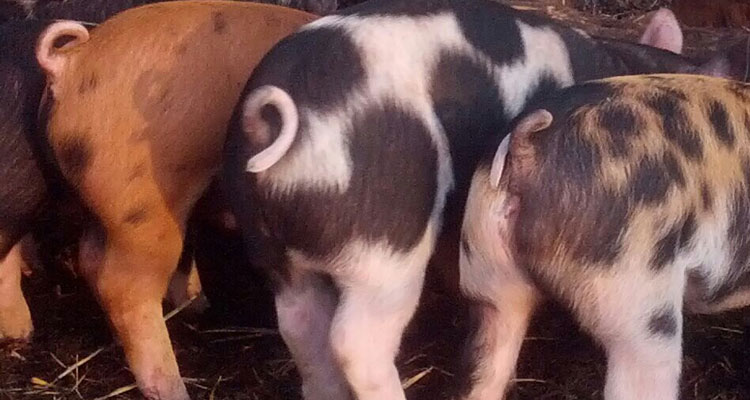
“It’s kind of funny,” Smith says. “If you want to protect these animals, you have to keep eating them.”
What’s not so funny is that many of the heritage breeds are threatened, endangered and, tragically, extinct. Even the well-known and highly desirable Tamworths, Gloucestershire Old Spots and Large Blacks are on the threatened list. “If we don’t protect the heritage breeds, we might not end up with any options,” Smith says. “If we lose those breeds, we lose a lot of choice and the ability to adapt.”
The problem is that everything that makes heritage pigs so appealing also makes them more difficult and expensive to raise than commercial pigs. The payoff is slower, too, because it takes them longer to reach market weight, and that’s if a farmer can find a heritage pig to raise and breed in the first place.
“It’s really hard finding purebred breeding stock,” says Smith, whose breeding herd is mostly Berkshire, with strains of Tamworth and other breeds. “It’s really hard to find in Canada and importing them from the States is really expensive with the dollar.” That means a heritage pig can retail for triple what a commercial pig does. Still, many consumers are willing to pay those premium prices, not just because heritage pork tastes better, but because it’s almost always sustainably and ethically raised.
So far, that’s proved true for Urban Digs. They opened four years ago with five pigs, a small flock of chickens and a couple of goats on the Burnaby property. Since then, they have added 21 acres in Merritt, which is where the pigs live now, and turned the Burnaby farm over to veggies, a market stand and a few animals for visitors to pet. They also hired a full-time butcher to prepare sausages, bacon, chops and roasts for their “Beasty Box” and web sales.
Their breeding herd has grown to 12 sows and two boars, and each sow gives birth to two litters a year. “Our goal, once we’re up to full production, is to have 200 market-ready pigs per year,” Smith says.
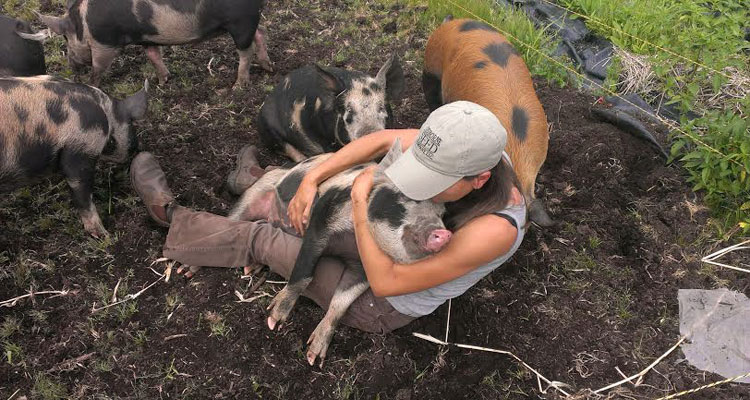
That’s a lot more than five, but is still tiny compared to a commercial operation, which can produce thousands, even tens of thousands of pigs a year. That’s fine with Smith: “We’re not interested in having a great big pig farm with lots of employees and expensive equipment,” she says. What she wants is simply good bacon and happy pigs.
To learn more, visit:
Urban Digs
4992 Byrne Rd.
Burnaby, BC
778-379-5262
www.urbandigsfarm.com

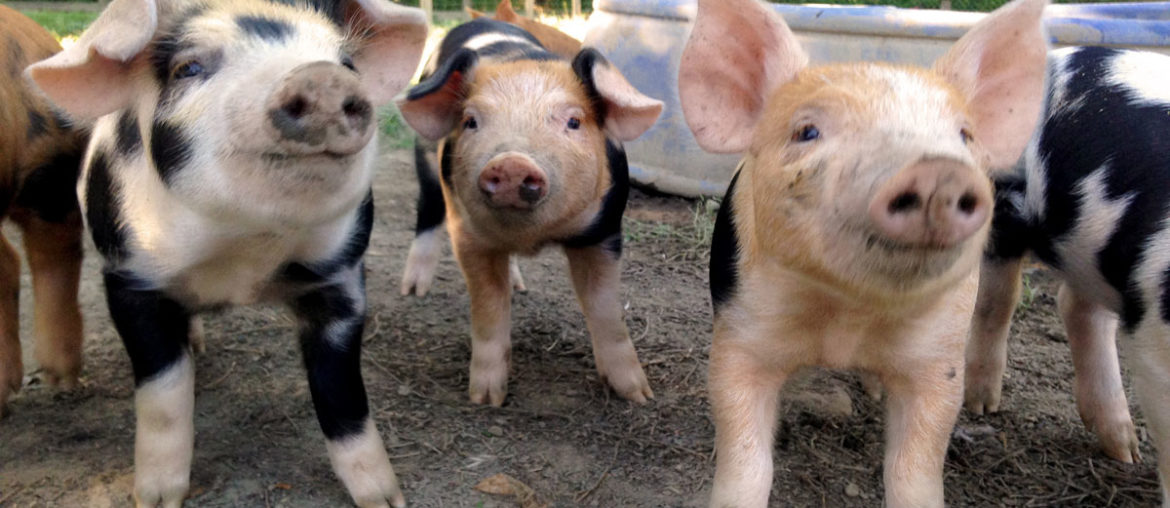
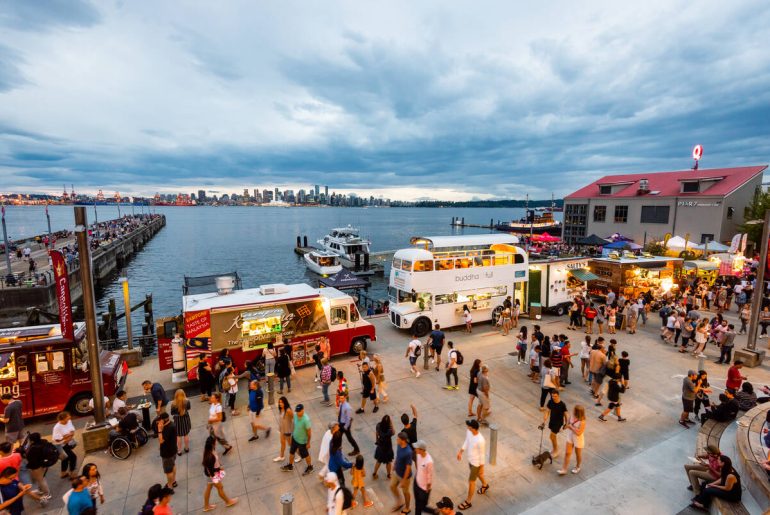

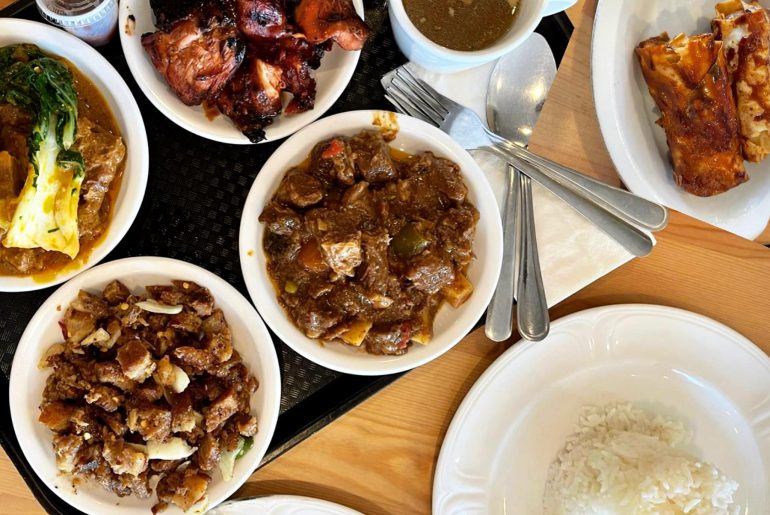
Comments are closed.